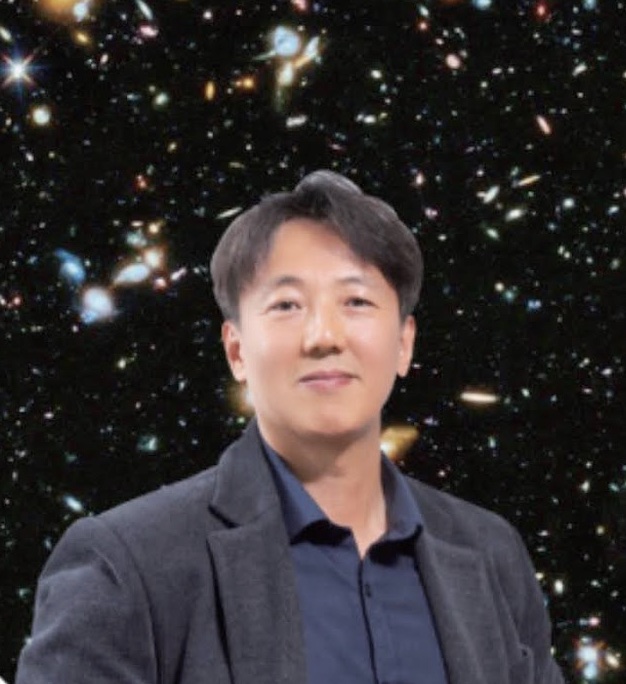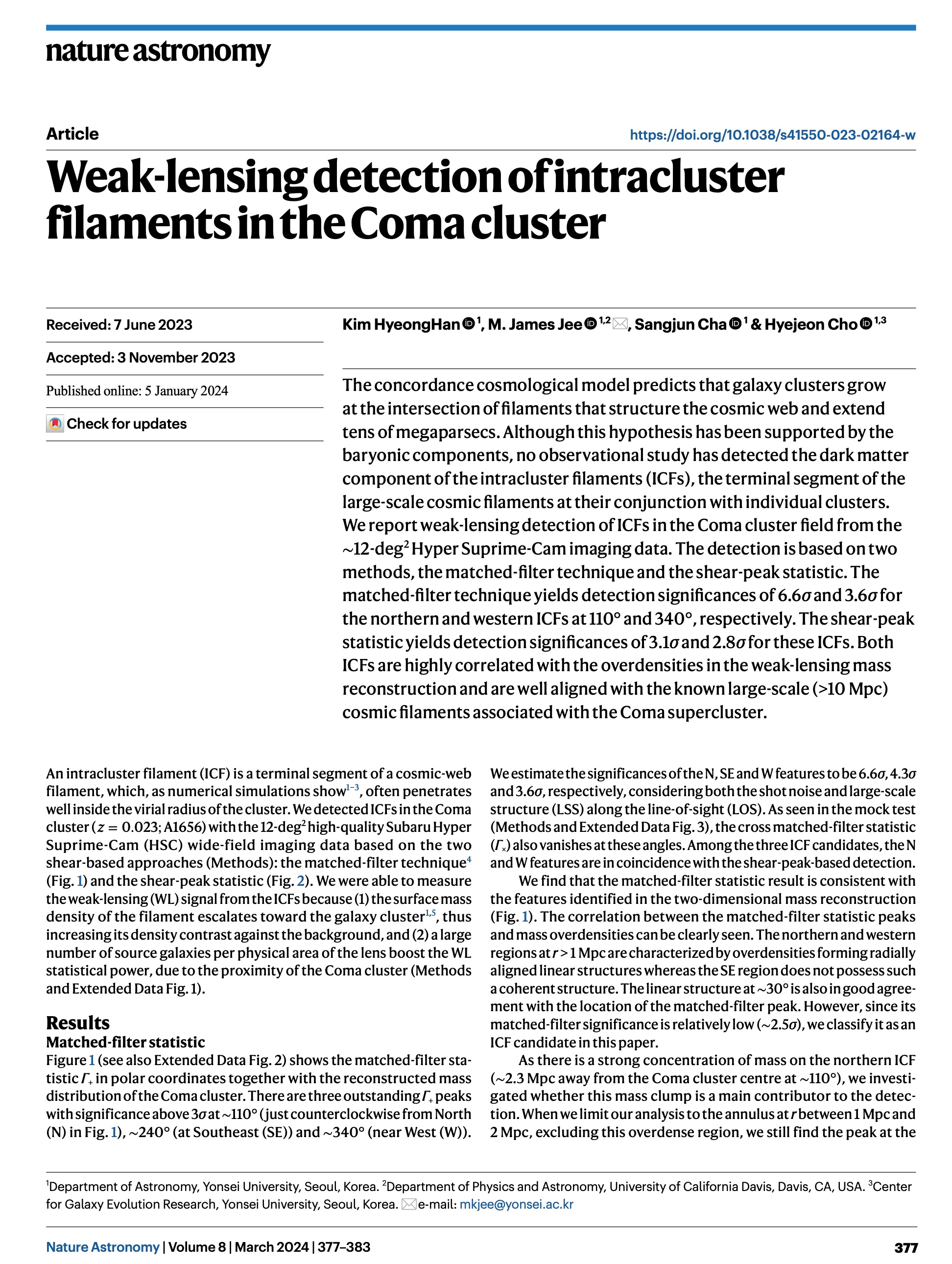Main Page: Difference between revisions
Jump to navigation
Jump to search
No edit summary |
No edit summary |
||
| Line 13: | Line 13: | ||
[https://scholar.google.co.kr/citations?user=B2XH5o0AAAAJ&hl=en&oi=ao Google scholar] | [https://scholar.google.co.kr/citations?user=B2XH5o0AAAAJ&hl=en&oi=ao Google scholar] | ||
<strong> | <strong>Research highlights</strong> | ||
{| class="wikitable" style="margin:auto" | {| class="wikitable" style="margin:auto" | ||
|- | |- | ||
| [[File: | | [[File:na2024.jpg|500px]] || The concordance cosmological model predicts that galaxy clusters grow at the intersection of filaments that structure the cosmic web and extend tens of megaparsecs. Although this hypothesis has been supported by the baryonic components, no observational study has detected the dark matter component of the intracluster filaments (ICFs), the terminal segment of the large-scale cosmic filaments at their conjunction with individual clusters. We report weak-lensing detection of ICFs in the Coma cluster field from the ∼12-deg2 Hyper Suprime-Cam imaging data. The detection is based on two methods, the matched-filter technique and the shear-peak statistic. The matched-filter technique yields detection significances of 6.6σ and 3.6σ for the northern and western ICFs at 110° and 340°, respectively. The shear-peak statistic yields detection significances of 3.1σ and 2.8σ for these ICFs. Both ICFs are highly correlated with the overdensities in the weak-lensing mass reconstruction and are well aligned with the known large-scale (>10 Mpc) cosmic filaments associated with the Coma supercluster. | ||
|- | |- | ||
|} | |} | ||
Revision as of 13:24, 22 May 2024
Welcome to Yonsei Observable UNiverse Group (YOUNG)
Publication in ADS
Google scholar
Research highlights

